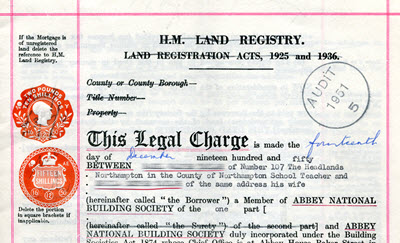Understanding Deeds When Selling A Property
When marketing a residence, there are a couple of fundamental subjects you need to recognize. This brings us to the concern of the various kinds of actions you will encounter.
 The process of selling residential or commercial property is much easier if you comprehend the fundamentals of the sales procedure. Marketing the residential property as well as handling customers and/or the hassles of real estate representatives can be irritating, but the heaps of documentation and all the different kinds entailed are really the biggest problem. Among these numerous forms and also papers are actions. We'll help make listing and selling a residential property a little less complicated. Just take a minute to read through this information and you’ll have a better understanding of the deed as it pertains to a house.
The process of selling residential or commercial property is much easier if you comprehend the fundamentals of the sales procedure. Marketing the residential property as well as handling customers and/or the hassles of real estate representatives can be irritating, but the heaps of documentation and all the different kinds entailed are really the biggest problem. Among these numerous forms and also papers are actions. We'll help make listing and selling a residential property a little less complicated. Just take a minute to read through this information and you’ll have a better understanding of the deed as it pertains to a house.
A warranty act is a pretty fundamental action that, for the most part, notes that the seller owns the property and there are no liens filed against the home such as tax liens or other debt related liens. If there are they could be transferred over to the new owner and that would be a big problem for them unless they were willing to accept this additional debt. It states that the home is lawfully acquired as well and that there are no covert issues the buyer must be aware of. This act guarantees buyers that the building or home they are buying is actually owned in full (without debt) by the person they are acquiring it from and they will not be hit with any type of additional debt or issues later. Moreover, if an additional person were to try to acquire the home, building or other property down the line, the warranty action would legally secure the brand-new purchaser and the buyer would be entitled to settlement from the original seller. The guarantee action is utilized in the majority of property sales.
On the other hand, quit claim deeds can be shown to the customers instead by an individual who does not necessarily legitimately have the residential or commercial property, rather holds the responsibility for that residential or commercial property. Such instances where this can happen are upon a death when the property is moved as inheritance, or when spouses are both on the name of the deed and they are in the process of a marital divorce. Quit claim deeds, unlike warranty deeds, do not give the person or persons buying the property a lot of security or legal protection. Actually, a buyer should always stay clear of quit claim deeds unless they are extremely familiar with them and they know the legal ramifications. Only a person who is experienced in buying and selling properties should consider a quit claim deed.
Understanding the various in between these actions will certainly help in multiple instances. Vendors of residential property will certainly not get caught up erroneously providing the incorrect type of act and buyers will be much better prepared to understand what kind of legal security as well as ownership civil liberties they will have depending on the kind of deed authorized. In the case of these actions, the warranty deed is definitely the way to go.
LOCATIONS WE SERVE
Please click on a link below to see the cities we serve in your state. My Reliable Mobile Notary is expanding to more areas so check back regularly as we expand to a location near you.
